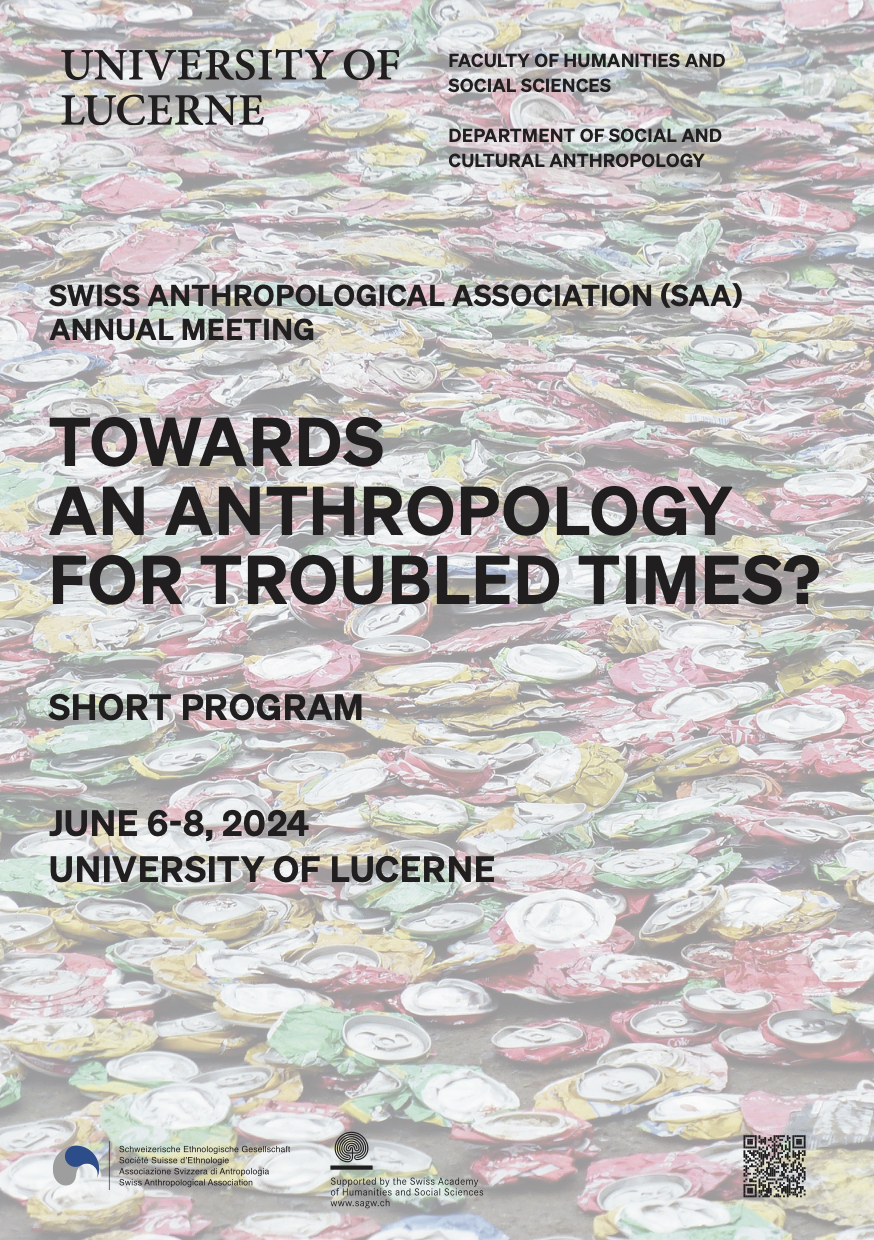“Towards an anthropology for troubled times?”
SEG Jahrestagung
Colloque Annuel de la SSE
Annual Meeting of the SAA
Lucerne, June 6-8, 2024
The conference will explore the potential for anthropology to understand and respond to an increasingly complex and uncertain world. As socially consequential environmental and political challenges increase, what role can anthropology play in discerning and addressing their effects? Can anthropological theories and methods provide, or be adapted to provide, compelling analyses of contemporary crises? And can such findings be effectively communicated to wider audiences? For example, applied anthropology, "action research", and calls for postcolonial methodologies have reignited long-standing discussions in the discipline, but which are largely unheard by civil society at large.
Often students too hope to find answers to pressing questions in what anthropology has to offer, yet they—along with many anthropologists working outside academia—wonder why the discipline remains comparatively mute on a public stage on which, for example, the understandings of such disciplines as economics and public health are regularly considered.
So, our questions revolve around both the productivity and the communicability of anthropology’s perspectives.
Troubled times and the rhetoric of crisis
We can, of course, also ask what makes for troubled times? Are the intellectual and affective sensibilities that give rise to such a notion, in practitioners and those they teach, entirely new? How do the preoccupations of professional anthropologists articulate with the concerns that dominate global discourses? How should they articulate with them? We also welcome panels which discuss ethical questions that background our theoretical commitments and our concerns about broader perceptions of them.
Troubles in and outside anthropology
As the SAA is a "national" association, we also invite suggestions for roundtables and discussion fora that provide a space for the scrutiny of more local disciplinary concerns: declining student numbers; the cutting of funds (e.g., for individual PhD projects); the production of an academic precariat; and national policies regarding the support of universities. For even when these problems press elsewhere, they often have a significant specific twist in Switzerland. Drawing on diverse perspectives and approaches, this conference aims to foster a critical dialogue on the future of anthropology and its potential contributions to help in coping with troubled times at home and more broadly.
